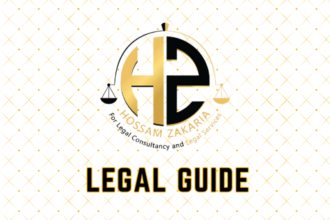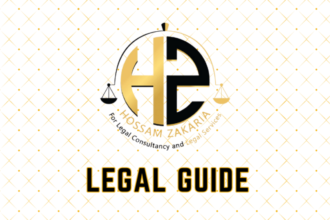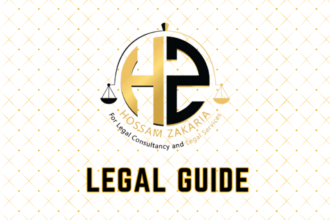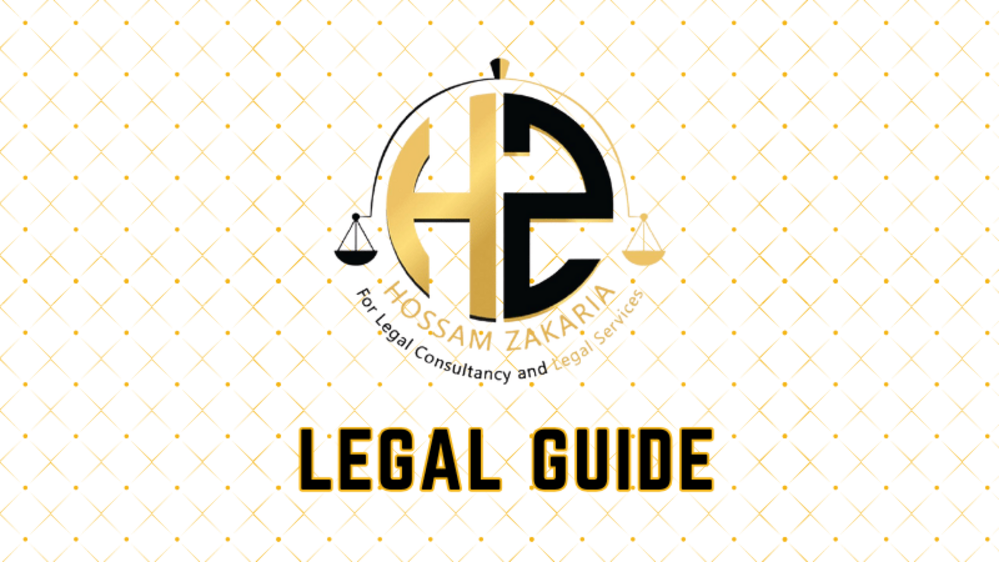Introduction
In the rapidly evolving landscape of aviation, ensuring compliant cabin crew training and safety protocols is no longer a regional concern—it is a pressing compliance challenge for UAE businesses operating in or alongside Qatar’s expanding airline sector. With aviation authorities across the Gulf, especially Qatar Civil Aviation Authority (QCAA), raising the bar for regulatory standards, UAE firms executing contracts in Qatar, or employing Qatari aircrew, must remain vigilant. The cross-border nature of aviation services, overlapping regulatory frameworks, and the introduction of new regulations such as those related to the Qatar National Civil Aviation Security Programme, demand proactive legal strategies. This advisory aims to dissect the current legal requirements for cabin crew training and safety in Qatar, their practical impact on UAE stakeholders, and the compliance strategies that UAE-based firms and executives must employ.
Recent legislative and regulatory updates across both countries underline the critical importance of this topic for UAE-based aviation companies, legal advisors, HR managers, and C-suite executives. This analysis is crucial for understanding not just the letter of the law, but its broader implications for operational safety, staffing, intercompany agreements, and risk management within the GCC aviation sector.
Table of Contents
- Overview of Qatari Cabin Crew Training Laws and Regulations
- UAE-Qatar Cross-Border Compliance: Key Legal Challenges
- Breakdown of Key Cabin Crew Training and Safety Requirements
- Legal Risks and Consequences of Non-Compliance
- Compliance Strategies and Best Practices for UAE Executives
- Case Studies and Hypothetical Scenarios
- Future Trends: Anticipated Legal Reforms and Regulatory Developments
- Conclusion: Key Takeaways and Strategic Recommendations
Overview of Qatari Cabin Crew Training Laws and Regulations
Core Aviation Legislation and Regulatory Framework in Qatar
Cabin crew training and safety obligations in Qatar are primarily regulated under the Qatar Civil Aviation Authority (QCAA) framework, anchored by the State Safety Programme, Civil Aviation Law (Law No. 15 of 2002 as amended), and regulatory manuals on aircrew licensing and operational safety. The QCAA adopts and localises International Civil Aviation Organization (ICAO) annexes, making these standards mandatory for all commercial operators within the state.
Noteworthy is the Qatar National Civil Aviation Security Programme (last updated in 2023), which imposes stringent requirements on cabin crew training—ranging from initial qualification, recurrent instruction, testing on emergency procedures, and detailed security awareness modules.
Key Qatari legal instruments include:
- Qatar Civil Aviation Law No. 15 of 2002 (as amended)
- QCAA Regulations on Aircrew Licensing (CAR-PART FCL) (latest as of 2024)
- QCAA Guidance on Cabin Crew Safety Training Programmes (issued in line with ICAO Annex 6 and Annex 17)
- Qatar National Civil Aviation Security Programme
Comparison: Qatari vs. UAE Aviation Training Regimes
| Regulation | Qatar (QCAA) | UAE (GCAA) |
|---|---|---|
| Core Law | Civil Aviation Law No. 15 of 2002 | Federal Law No. 20 of 1991 and Federal Decree-Law No. 26 of 2022 (UAE Civil Aviation Law Updates 2025) |
| Governing Body | QCAA | UAE GCAA |
| Training Frequency | Initial and recurrent (every 12 months min) | Initial and recurrent (every 12 months min) |
| Security Module | Detailed, tailored to Qatari threat profile | ICAO-based, with local amendments |
| Language of Instruction | English & Arabic | English (some modules in Arabic for local airlines) |
| Recordkeeping | QCAA audit-ready record system | GCAA digital compliance portal |
Insight
Legal practitioners must be aware that while both regimes are ICAO-aligned, the QCAA actively supplements training requirements to reflect risks unique to Qatar’s airspace and airport environment. UAE-based firms supplying staff or training to Qatari operators must demonstrate strict equivalence or exceed QCAA benchmarks, as referencing UAE-compliant training alone is insufficient in regulatory audits.
UAE-Qatar Cross-Border Compliance: Key Legal Challenges
Licensing, Approvals, and Personnel Mobility
When UAE-based firms dispatch cabin crew, provide training, or operate under contract with Qatari carriers, two regulatory nexuses arise:
- Recognition of Training Certificates and Licences: Not all UAE regulatory credentials are automatically recognised by QCAA for operational deployment, especially where QCAA has imposed additional localisation or security modules.
- Employment Law and Labor Mobility: Crossover of UAE-based employment contracts into the Qatari legal context introduces the need for dual compliance. Qatari Labour Law and immigration rules apply even to foreign cabin crew once they undertake duties on Qatari-registered aircraft.
Common contractual pitfalls include failure to address Qatari regulatory updates in service agreements or a lack of clarity about which state’s safety standards and insurance requirements govern the assignment.
Key Legal Sources
- UAE Federal Law No. 20 of 1991 (and amendments by Federal Decree-Law No. 26 of 2022, “UAE Civil Aviation Law 2025 Updates”)
- Qatari Law No. 13 of 2004 (Labour Law)
- Relevant Circulars from QCAA and UAE GCAA
Comparative Table: Recognition of Training and Licensing
| Scenario | CQAA Recognition of UAE Training | Additional Local Qatari Requirements |
|---|---|---|
| Initial Training | Conditional (subject to QCAA audit) | Qatari security modules, local regulatory briefings |
| Recurrent Training | Conditional (GCAA-QCAA reciprocity varies) | Must address state-specific procedures |
| Emergency Drills | Partial (physical training must be QCAA-approved) | Live drills on Qatari aircraft, QCAA examiner presence |
Practical Insight
UAE firms must consult QCAA-approved training providers or secure local audit clearance for any training delivered outside Qatar. Contractual clauses should specify compliance obligations for both UAE and Qatari law. Failure to plan for dual compliance is a recurrent legal risk flagged in both UAE and Qatari enforcement actions.
Breakdown of Key Cabin Crew Training and Safety Requirements
Initial and Recurrent Training Modules
QCAA mandates comprehensive and recurrent cabin crew training that spans:
- Aircraft Type-Specific Training: Ground and in-flight safety protocols, door operations, fire-fighting drills, evacuation procedures.
- Emergency Procedures: Including decompression, water landings, medical emergencies, and unruly passenger management.
- Security Awareness: Threat identification, bomb and sabotage procedures, hijack management in compliance with the Qatar National Civil Aviation Security Programme.
- Customer Service and Passenger Welfare: For sensitive scenarios (disability, minors, special medical needs).
- Practical Assessment and Drills: All training modules are followed by both theoretical and practical assessment, conducted or supervised by QCAA-approved examiners.
Visual: Cabin Crew Training and Recurrent Process
Suggest placement of a process flow diagram here illustrating: Initial training → Onboard familiarisation → Recurrent assessment (12 months) → Emergency drills → QCAA audit.
Recordkeeping and Audit Regulations
QCAA requires operators to maintain comprehensive training records, including:
- Full course syllabi (as updated for 2024 QCAA circulars)
- Attendance registers and assessment results
- Ongoing competency verification and remedial instruction logs
- Proof of QCAA examiner or QCAA-observed evaluations
Records must be “audit ready” at all times and available for both on-site and digital inspection (per QCAA Regulatory Notice 02/2023).
Penalties for Breach
| Breach Type | Penalty (QAR) | Other Enforcement Measures |
|---|---|---|
| Lapsed or incomplete training records | 10,000–50,000 | Grounding of affected crew, operator notice |
| Failure to cover emergency/security modules | Up to 100,000 | Suspension of AOC* |
| False documentation/falsification of training | 150,000+ | Prosecution under Law No. 15/2002 |
*AOC: Air Operator Certificate
Legal Risks and Consequences of Non-Compliance
Exposure for UAE Companies and Executives
Legal enforcement in Qatar holds both operators and senior management personally liable for systemic breaches. Under Articles 45 and 46 of the Qatari Civil Aviation Law No. 15 of 2002, ‘accountable managers’—including those of UAE-headquartered firms with local operations—are subject to fines, civil claims, and criminal sanctions where negligence results in injury or operational hazard.
Risks sharpen if a UAE firm deploys cabin crew without verifying QCAA-compliance or if contractual documentation lacks transparency on liability or fails to specify compliance strategies. Given past enforcement history (see QCAA Sanctions List 2023), even administrative oversights (such as missing record entries or outdated curriculum) have led to both monetary penalties and reputational risk for parent companies and executives.
Illustrative Legal Risks Table
| Risk Area | Direct Consequence | Compliance Strategy |
|---|---|---|
| Training record-keeping lapses | QCAA fines, operational audits, loss of client contracts | Centralised compliance monitoring, digital record systems |
| Non-aligned modules in training | Crew de-certification; AOC suspension risk | QCAA-localisation checks; regular audit workshops |
| Incorrect contract framing | Disputed liability in cross-border incidents | Legal review and region-specific clauses |
Insurance and Liability Considerations
In the event of incident or regulatory breach, insurance providers may deny cover if non-compliance is established, particularly where QCAA local requirements have been missed. This elevates personal liability for executives under both Qatari and UAE law, making robust compliance a commercial as well as a regulatory imperative.
Compliance Strategies and Best Practices for UAE Executives
Actionable Steps for Legal and HR Teams
- Audit Preparation and Pre-Deployment Checks: Conduct regular internal audits of training programs and documentation before cabin crew deployment to Qatar.
- Engage QCAA-Approved Training Providers: Where feasible, opt for QCAA-licensed training firms or co-develop modules tailored to the Qatar regulatory context.
- Update Employment and Deployment Contracts: Ensure contracts cover jurisdiction, local training, health, and insurance obligations, with explicit language on compliance checkpoints.
- Align with Local Counsel: Liaise with legal consultants licensed in Qatar for periodic reviews, especially during updates to QCAA regulations or major operational changes.
- Establish a Digital Compliance Hub: Use cloud-based training logs and audit trails to ensure readiness for QCAA inspections at short notice.
Compliance Checklist Table
| Step | Required Action |
|---|---|
| 1. Verify Training Syllabi | Match against latest QCAA guidelines (QCAA Circular 08/2024) |
| 2. Instructor Credentials | Ensure QCAA approval and documented experience |
| 3. Recurrent Training | Confirm completion for every 12 months |
| 4. Recordkeeping | Store in digital, QCAA-accessible format |
| 5. Contract Drafting | Include explicit indemnity and compliance clauses |
Visual Suggestion
Propose an infographic illustrating best-practice compliance workflow from initial contract review to post-deployment audits.
Case Studies and Hypothetical Scenarios
Case Study 1: Deployment by UAE-Based Training Firm
A Dubai-based training provider won a contract to deliver recurrent safety training for Qatar’s national carrier. The firm’s curriculum, while GCAA-compliant, omitted a Qatari-specific module on ‘threat assessment and local security protocol.’ During a routine QCAA audit, this gap triggered immediate suspension of the training programme and a fine of QAR 50,000. The client contract was placed under review, resulting in reputational risk and the need for mitigation strategies including instructor re-certification and module redesign. This highlights the importance of localisation and proactive legal review.
Case Study 2: Contracting Risk for UAE Operator
A UAE-based airline provided cabin crew to a joint Qatar-UAE charter operation. The employment contract designated UAE law as governing law but referenced operational compliance with local (Qatari) regulations as ‘advisory only.’ When an in-flight incident required an emergency evacuation, legal proceedings in Doha placed full liability on the UAE operating company for non-adherence to QCAA-mandated drills, overriding the contract due to public safety considerations. This emphasises the danger of undervaluing Qatari compliance in active operations.
Hypothetical: Insurance Claim Denial
A major incident results in an injury aboard a Qatari-registered aircraft, where pre-incident paperwork reveals lapses in QCAA-specified training logs. The insurer exercises policy exclusions for regulatory breach, exposing both the operator and C-suite executives to direct claims and regulatory sanctions under both Qatari and UAE law. This scenario underscores the importance of integrated legal and compliance support across regulatory jurisdictions for all cross-border projects.
Future Trends: Anticipated Legal Reforms and Regulatory Developments
Upcoming Changes in Qatar and UAE Legal Regimes
In both Qatar and the UAE, 2025 will see further updates to aviation safety standards and cross-border recognition of training records. The UAE, under Federal Decree-Law No. 26 of 2022 (the so-called ‘UAE Civil Aviation Law 2025 Updates’), is expected to introduce new digital compliance platforms and heightened penalties for non-compliance—mirroring trends in QCAA enforcement.
Key areas to watch:
- Digitisation of training and compliance documentation (secure portals, real-time audit access)
- Stricter reciprocal acceptance of cross-border training, subject to periodic regulatory review
- Greater executive liability for systemic compliance failures in aviation safety
- Integrated regional approaches to emergency and security module alignment (GCC Aviation Safety Taskforce Proposals 2024-2025)
Visual Suggestion
Suggest including a timeline or infographic outlining future legislative milestones in aviation safety law across Qatar and UAE through 2025.
Conclusion: Key Takeaways and Strategic Recommendations
The evolving landscape of cabin crew training and safety rules in Qatar presents significant legal challenges and opportunities for UAE-based firms and their executives. Cross-border operations demand compliance strategies that move beyond formal legal requirements to embrace active risk management, continuous audit-readiness, and contractual precision. Failure to strategise results in not only regulatory penalties, but potential operational shutdowns, insurance claim denials, and personal liability for senior management.
UAE firms are strongly advised to:
- Undertake periodic legal audits aligned with the latest QCAA and UAE GCAA updates
- Embed cross-jurisdictional compliance into employment and service contracts
- Leverage digital compliance tools for real-time recordkeeping and audit support
- Prioritise ongoing staff training with full localisation to Qatari operational risks
- Seek regular advisory engagement from legal consultants with aviation sector expertise across the GCC
Proactive compliance not only safeguards business interests but positions UAE stakeholders as agile, reputable partners in the competitive GCC aviation sector. Looking ahead, closer regulatory alignment and digital records management will define best practice—and only firms ready to adapt swiftly will remain competitive and risk-resilient.



